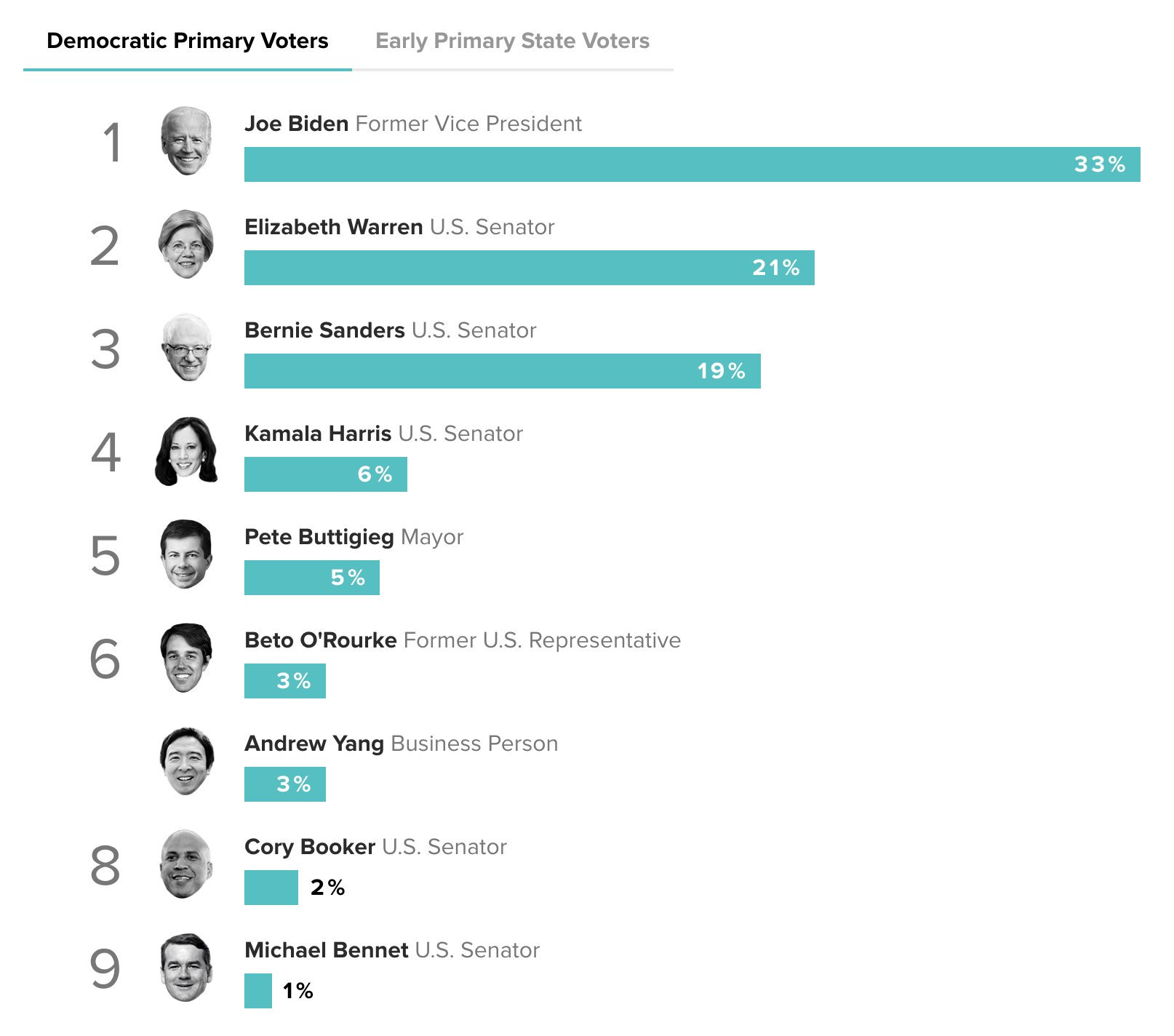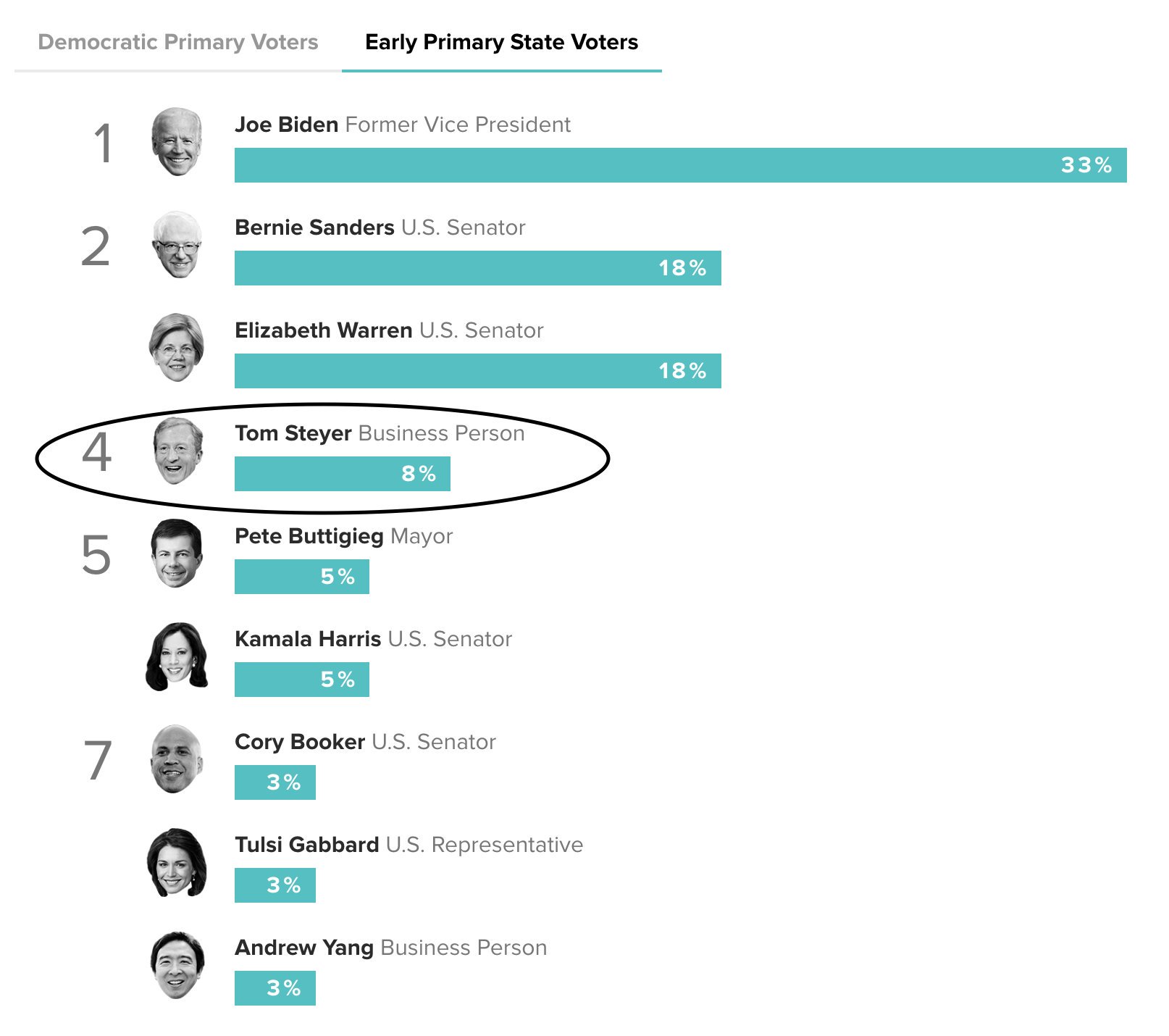Epistemic status: speculative
Andrew Yang understands AI X-risk. Tom Steyer has spent $7 million on adds in early primary states, and it has had a big effect:


If a candidate gets more than 15% of the vote in Iowa (in any given caucus), they get delegates. Doing that consistently in many caucuses would be an important milestone for outsider-candidates. And I'm probably biased because I think many of his policies are correct, but I think that if Andrew Yang just becomes mainstream, and accepted by some "sensible people" after some early primaries, there's a decent chance he would win the primary. (And I think he has at least a 50% chance of beating Trump). It also seems surprisingly easy to have an outsize influence in the money-in-politics landscape. Peter Thiel's early investment in Trump looks brilliant today (at accomplishing the terrible goal of installing a protectionist).
From an AI policy standpoint, having the leader of the free world on board would be big. This opportunity is potentially one that makes AI policy money constrained rather than talent constrained for the moment.

Hey Kbog,
Your analysis seems to rely heavily on the judgement of r/neoliberal.
Can you explain to a dummy like me, isn't this a serious weakpoint in your analysis.
I'm sure this is overly simplifying things, but I would have thought that actually it's the social democracies which follow very technocratic keynesian economics that produce better economic outcomes (idk, greater growth, less unemployment, more entrepreneurship, haha I have no idea how true any of this is tbh - I just presume). Espescially now considering that the US/globe is facing possible recession, I would think fiscal stimulus would be even more ideal.
I can't seem to find anywhere that neoliberalism holds some kind of academic consensus.